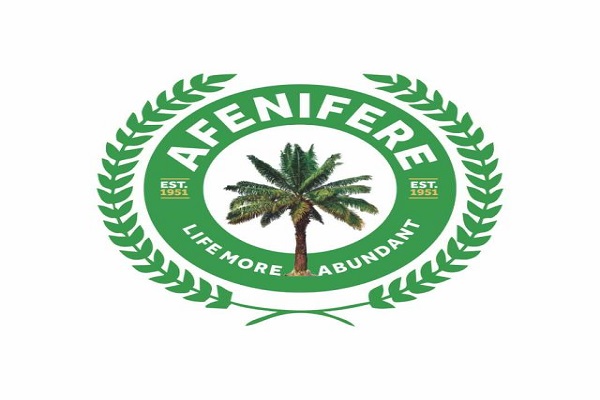The reintroduced National Water Resources bill which seeks to provide for the equitable and sustainable development, management, use and conservation of Nigeria’s inter-state surface water and groundwater resources, has remained a subject of controversy among stakeholders.
Just like the 2020 version, the bill sponsored by House of Representative member Sada Soli, vests the control of ground and surface water in the hands of the federal government and proposes to make it mandatory for one to obtain a license before using water that is considered public for domestic or commercial purposes.
Some lawmakers in the green chambers raised objections to the bill when it was reintroduced at plenary on July 29, saying it was not different from the version rejected by the 8th Assembly, and the Speaker of the House of Representatives Femi Gbajabiamila, directed the chairman of committee on rules and business Abubakar Fulata, to make copies of the bill available to lawmakers to study before further deliberation.
Clause 10 (1) of the bill stipulates that, “it shall be the duty of the minister to promote the protection, use, development, conservation, and management of inter-state water resources throughout Nigeria and to ensure the effective exercise of powers and performance of duties by institutions and persons identified under this bill and in the constitution.
It further states in Clause 10 (2 and 3) that “the minister shall have the power to make regulations, policies and strategies for the proper carrying out of the provisions of this bill and…shall have and exercise reasonable powers as are necessary and required in furtherance of the duties and functions conferred pursuant to this bill, the directives of the President, or any other law.”
Meanwhile, according to UNICEF, sustainable and equitable access to safe drinking water remains a challenge in Nigeria, with over 86 per cent of Nigerians lacking access to a safely managed drinking water source.
Only 30 per cent of the population in Nigeria’s north are said to have access to safe drinking water and adequate sanitation.This contributes to high prevalence of waterborne diseases and a threat to the livelihoods of smallholder farmers.
Access to clean, portable water is also now viewed as an equality issue as in most cases, women and girls have the responsibility of fetching water and are disproportionately affected by poor sanitation and hygiene facilities.
Controversies and rejection of the bill
In a communiqué signed by the Governor of Ekiti State and Chairman of the Nigerian Governor’s Forum Kayode Fayemi, the 36 state governors unanimously rejected the National Water Resources bill which they say is inconsistent with the provisions of the Constitution of the Federal Republic of Nigeria and does not adequately address the interests of the states, calling for a review of the bill.
Similarly, a communiqué issued at the end of the colloquium of the Indigenous Peoples within Nigeria hosted by the Malcolm Omirhobo Foundation on 23rd September, described the bill as “illegal, unlawful and unconstitutional”.
It noted that the Land Use Act was promulgated to give the state governors absolute power over land within their states and this position cannot be taken away via the National Water Resources bill, or through any other bill.
“If the National Water Resources Bill is passed into law, it will give Federal Government exclusive dominance and control on waterways which will further impoverish Nigerians in riverine states who depend on waterways to generate revenue internally,” the communiqué read in part.
It also urged the Nigerian Government to immediately dredge the River Niger and Oguta lake to be navigable and reopen, activate and develop the Warri, Calabar, Koko, Onne and Port Harcourt sea ports, to create jobs and promote socio-economic activities in the country.
No going back on National Water Resources bill – FG
The Nigerian Government has insisted there is no going back on its plans to amalgamate already existing Water Resources laws for the development and management of the country’s water resources, through the controversial bill.
Minister of Water Resources Suleiman Adamu, said in a recent interview that there was nothing unusual about the bill which seeks the overall benefit of all Nigerians, including those vehemently opposed to it.
“If states like Kebbi, where River Niger comes in, or Adamawa where River Benue flows in decide that they want to control the water at that point, what will happen to the downstream communities?
“That is why, since independence, our constitution has made it that the water that flows across interstate or inter-regional boundaries as it were at that time, the responsibility for that should be vested in the federal government,” Adamu said.
The Minister explained that the National Water Resources bill, takes into account the rights of citizens to access safe water and basic sanitation, as well as meet the basic human needs of present and future generations and reducing poverty.
Global best practice in water management
The Integrated Water Resources Management (IWRM) approach has been accepted internationally as the way forward for efficient, equitable and sustainable development and management of the world’s limited water resources and for coping with conflicting demands.
The United Nations notes that in many regions, the availability of water in both quantity and quality is being severely affected by climate variability and climate change, causing demand to outstrip supply and advises that the traditional fragmented approach to the management of water resources was no longer viable and a more holistic approach was required.
“Water is a key driver of economic and social development while it also has a basic function in maintaining the integrity of the natural environment. However, water is only one of a number of vital natural resources and it is imperative that water issues are not considered in isolation.
Managers, whether in the government or private sectors, have to make difficult decisions on water allocation. More and more they have to apportion diminishing supplies between ever-increasing demands,” according to a UN report.


